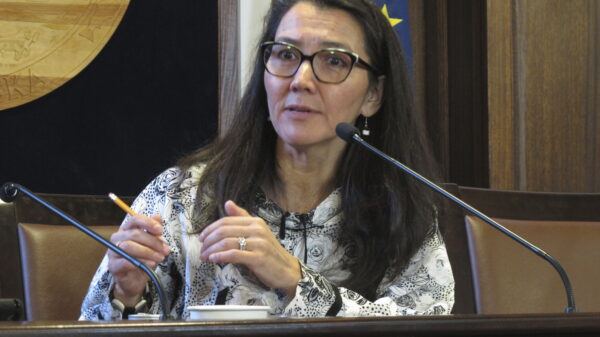UPDATE: Florida Governor Ron DeSantis has escalated efforts for mid-decade redistricting, aiming to capitalize on recent map changes in Texas and California. In a swift social media move, DeSantis urged followers to “Stay tuned,” indicating urgent plans for redistricting to secure additional Republican seats ahead of the 2026 elections.
During an August press conference, DeSantis expressed his full support for a controversial mid-decade census to redraw congressional maps, a strategy that could potentially increase the Republican delegation in Florida, currently holding 20 of 28 seats. “We might have 29, 30, 31, maybe. Who knows?” he stated, reinforcing his belief that undercounting undocumented immigrants could expand representation.
The pressure comes as Texas leads the charge, with Governor Greg Abbott signing a new congressional map into law on August 29 that could yield five additional Republican seats. This has triggered a wave of gerrymandering across both Republican- and Democratic-led states, according to The Associated Press.
“After gutting representation for Black Floridians and stacking the court to uphold it, he wants to further gerrymander and suppress the vote of millions of Floridians,” stated Nikki Fried, chair of the Florida Democratic Party, condemning DeSantis’s actions.
As Democrats eye a net gain of just three seats to reclaim House control, DeSantis’s redistricting ambitions are critical. The stakes are high, with midterm elections typically favoring the opposition party, prompting Trump’s call for redistricting to mitigate potential losses.
Florida’s House Speaker Daniel Perez has established a special committee on congressional redistricting but confirmed earlier this week that “there is no plan yet” for new maps. DeSantis’s recent push seeks to change that narrative quickly.
Meanwhile, other states are also responding to Trump’s call. California has taken a countermeasure, with a new U.S. House map approved by voters on November 4 anticipated to help Democrats gain five additional seats, further complicating the redistricting landscape.
As the political climate intensifies, Indiana’s Republican Senate has decided to halt redistricting plans, citing insufficient support among lawmakers, despite ongoing pressure from the White House. “There are not enough votes to move that idea forward,” stated Rodric Bray, the Indiana Senate President.
With the clock ticking towards the 2026 elections, all eyes will be on Florida as DeSantis’s redistricting strategy unfolds. Voters and political analysts alike are poised to see how these developments will shape the future of congressional representation in the state.
Stay tuned for further updates as these critical developments continue to evolve.






































































